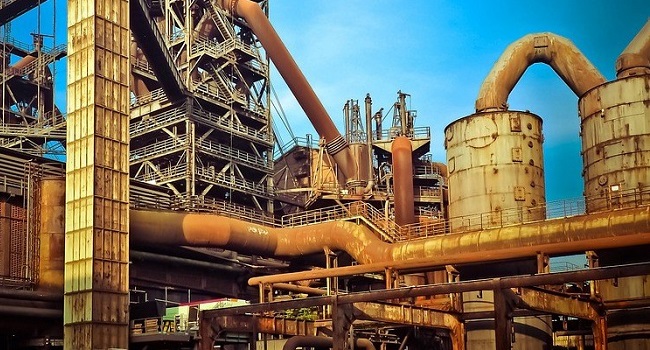The Nigerian Federal Government has embarked on a renewed effort to resurrect the Ajaokuta Steel Company, a vital industrial asset envisioned to be a cornerstone of the nation’s manufacturing ambitions and job creation strategy. The revitalization of this long-dormant steel giant is considered crucial for Nigeria’s economic development and industrial diversification. The government’s approach involves engaging with prominent Chinese steel conglomerates to secure technical expertise, financial backing, and strategic partnerships necessary to bring the facility back to full operational capacity. This move signifies the administration’s commitment to leveraging international collaboration to achieve its industrialization goals.
A high-level Nigerian delegation, led by the Minister of Steel Development, Shuaibu Audu, is currently in China on an investment drive aimed at attracting strategic investors who can play a pivotal role in the Ajaokuta Steel Company’s revival. The delegation, which includes the Director-General of the Nigeria-China Strategic Partnership and officials from the Nigerian Embassy in Beijing, has held meetings with key executives from leading Chinese steel manufacturers such as Sino Steel, Fangda Steel Group, and Jingye Steel Group. These discussions have centered on conducting technical evaluations of the Ajaokuta facility, designing viable operational models, and structuring appropriate financing frameworks to facilitate the steel plant’s resuscitation.
Minister Audu has emphasized that the revitalization of Ajaokuta Steel is a top priority for President Bola Tinubu’s administration. He expressed confidence that the project will be realized within the current government’s tenure. The Minister highlighted the immense potential of the steel company to stimulate industrial growth, enhance local manufacturing, and generate thousands of much-needed jobs for Nigerians. The revival of Ajaokuta Steel is expected to have a significant positive impact on various sectors, including infrastructure development, automobile manufacturing, and construction. The project’s success is viewed as a critical step towards Nigeria’s economic transformation.
The government’s engagement with Chinese steel companies underscores its commitment to forging strategic international partnerships. Mr. Joseph Tegbe, the Director-General of the Nigeria-China Strategic Partnership, described the meetings as a crucial step in aligning China’s extensive industrial capabilities with Nigeria’s economic development objectives. He emphasized that this engagement demonstrates Nigeria’s seriousness in establishing transformative partnerships that can unlock long-term value across multiple sectors, particularly manufacturing and infrastructure. The collaboration with China is expected to provide the necessary technical and financial support for the Ajaokuta Steel project, contributing significantly to Nigeria’s industrial resurgence.
The renewed focus on Ajaokuta Steel comes amid increasing calls for Nigeria to reduce its reliance on steel imports and leverage its local capacity to support various development initiatives. The steel plant, conceived in the late 1970s, has remained largely inactive for decades due to a combination of policy inconsistencies, failed concession agreements, and inadequate investment. The present administration, however, is determined to overcome these historical challenges and complete the revival process, positioning Ajaokuta Steel as a major engine of Nigeria’s industrial growth.
Ajaokuta Steel Company, with an existing installed capacity of 1.9 million tonnes and the potential to reach 5 million tonnes annually, is considered a cornerstone of Nigeria’s industrial development strategy, particularly in supporting the automotive, construction, and heavy machinery sectors. The successful revitalization of this steel plant is projected to not only boost domestic manufacturing but also contribute significantly to job creation, infrastructure development, and overall economic growth, marking a significant step forward for Nigeria’s industrial and economic progress.


